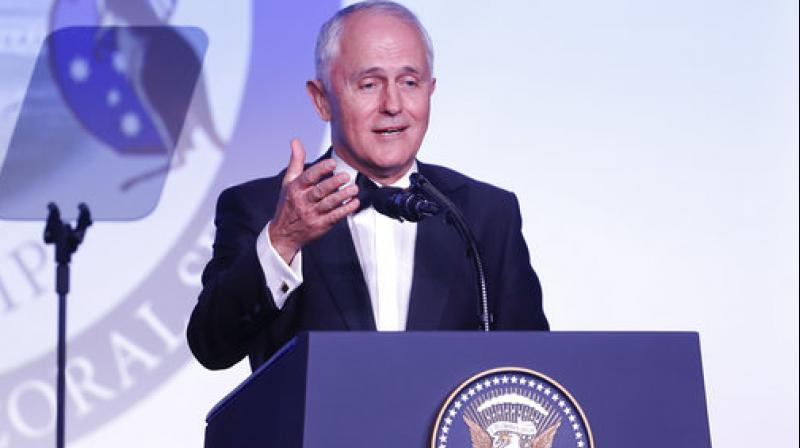Australian leader says gay marriage could be law this year
The Liberal Party held a crisis meeting late Monday to resolve infighting and rejected a push to allow lawmakers to decide the issue now.

Canberra: Australia's prime minister said Tuesday that Parliament could legalize gay marriage this year if the nation's voters endorse it in a rare nonbinding poll in November.
Prime Minister Malcolm Turnbull said he expected the public would support marriage equality in the so-called plebiscite, and that he would personally campaign for a 'yes' vote. It would be only the fourth time in Australian history, and first time in 43 years, that the government puts a legally nonbinding question to the electorate.
"I have other calls on my time as prime minister, but I will certainly support a 'yes' vote," Turnbull told reporters.
The conservative Liberal Party-led coalition was narrowly re-elected in July 2016 with a promise to let voters decide whether Australia should recognize same-sex marriage through a popular vote. But the Senate in November blocked the plebiscite, which would cost 170 million Australian dollars ($135 million) and promote a divisive public debate.
The Liberal Party held a crisis meeting late Monday to resolve infighting and rejected a push to allow lawmakers to decide the issue now.
The government on Tuesday endorsed the party decision to ask the Senate this week to reconsider allowing the plebiscite, which would be held Nov. 25.
Voting would be compulsory and failure to vote would be punishable by a fine, though a voluntary vote would be held if the Senate again rejects the measure.
The result would not be legally binding and some lawmakers have already declared it would not sway their vote on gay marriage legislation.
If most Australians want gay marriage, the Parliament would vote on legislation before the last two-week session of Parliament of the year ends on Dec. 7.
"Strong leaders carry out their promises, weak leaders break them," Turnbull told reporters.
Gay-rights advocates say enough lawmakers already back marriage equality to make same-sex marriage legal in Australia now. For the first time in Australian history, both the prime minister and opposition leader back the reform.
Rights advocates see the plebiscite as both a delaying tactic forced by a hard right-wing minority and a strategy to undermine political support.
Opponents of the plebiscite argue that the government-funded advertising campaigns for the cases for and against would give authority to bigoted and homophobic arguments. Supporters say it would give ordinary people a voice in a debate dominated by activists.
If the Senate again blocks the plebiscite, the government intends to hold a voluntary postal plebiscite by Nov. 15. Voters would mail in their opinions instead of using ballot boxes at a cost of up to AU$122 million. Responses would be voluntary and therefore less indicative of public opinion.
Opponents argue that the postal plebiscite would also need Senate approval, and have threatened a court challenge if it proceeds. Turnbull said he is confident that the postal option did not need Senate endorsement.
Finance Minister Mathias Cormann, the government's deputy Senate leader and an opponent of same-sex marriage, said some type of plebiscite is essential if Parliament is to decide the marriage equality question.
Sen. Nick Xenophon said his minor party's opposition had not changed since they opposed the plebiscite in the November vote.
Lyle Shelton, managing director of the Australian Christian Lobby, said his advocacy group had collected 55,000 signatures on a petition demanding a plebiscite.
Sheldon handed the petition to Sen. Cory Bernardi, leader of the minor Australian Conservatives party, to present to the Senate.
Bernardi has said he would vote against gay marriage regardless of what the plebiscite found.

